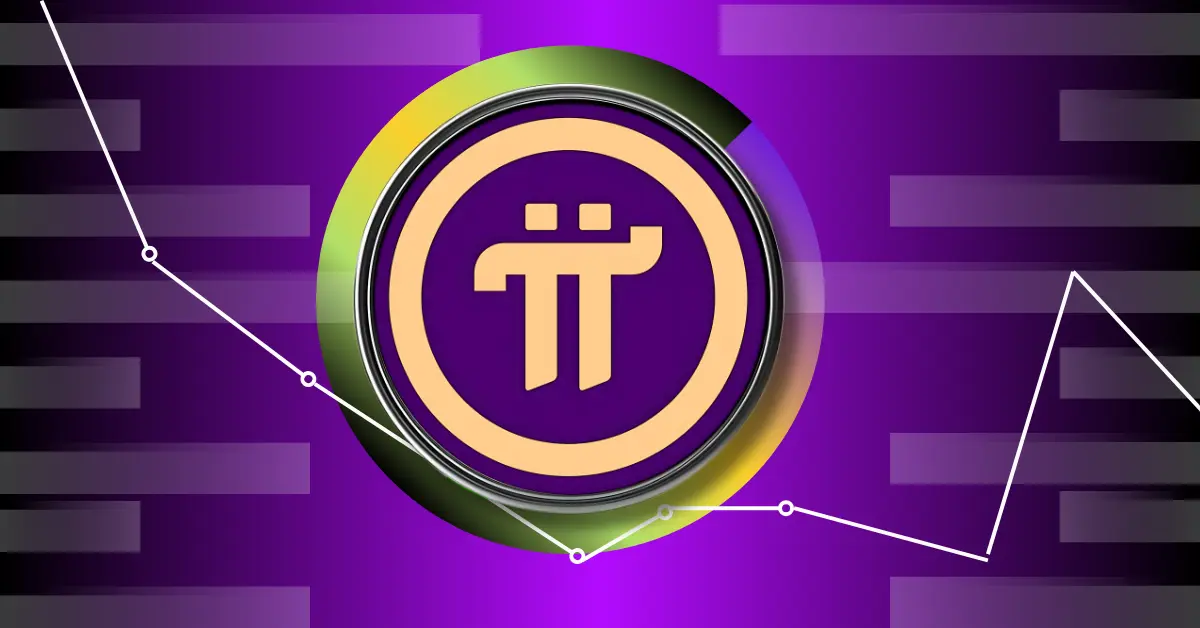The Rise of Citizen Developers: An Analysis of Pi Network’s AI-Powered App Studio
The digital landscape is undergoing a profound transformation, driven by the convergence of decentralized technologies and artificial intelligence. At the forefront of this evolution is the Pi Network, which has introduced a groundbreaking tool designed to democratize app development: the AI-powered App Studio. Launched during the Pi2Day 2025 celebrations, this platform has already seen remarkable adoption, with over 7,900 AI-powered apps created within days of its release. This surge highlights the growing demand for accessible development tools within the Pi Network community and beyond. The App Studio represents a significant leap forward in making decentralized application (dApp) creation accessible to non-technical users, potentially reshaping the Web3 ecosystem.
Breaking Down Barriers to Development
Traditional app development has long been the domain of skilled programmers, requiring extensive knowledge of coding languages and complex frameworks. Pi App Studio disrupts this paradigm by offering a no-code platform that leverages AI to translate user ideas into functional applications. This approach is particularly significant in the context of Web3, where decentralized applications are becoming increasingly important but often remain inaccessible to those without technical expertise.
The platform’s AI engine serves as its backbone, interpreting natural language inputs from users and automatically generating the necessary code and infrastructure. This eliminates the need for manual programming, allowing individuals to focus on their app’s functionality and design rather than technical implementation. Additionally, the inclusion of drag-and-drop components provides a visual interface for assembling applications, striking a balance between simplicity and customization.
Web3 Integration and Monetization
Pi App Studio is specifically designed to create dApps that seamlessly integrate with the Pi Network’s blockchain infrastructure. This includes support for Pi Coin transactions, decentralized data storage, and other Web3 functionalities. By enabling developers to build applications that natively interact with the Pi blockchain, the platform fosters a more cohesive and interconnected ecosystem.
Monetization is another critical aspect of Pi App Studio. The platform provides built-in tools that allow developers to earn Pi Coin through various mechanisms, such as in-app purchases, subscriptions, and advertising. This not only incentivizes app creation but also drives real-world utility for Pi Coin, potentially increasing its value and adoption.
Ecosystem Directory Staking and Community Growth
To further enhance app visibility and promote community-driven growth, Pi Network introduced Ecosystem Directory Staking. This feature allows users to stake Pi Coins to support their favorite apps, increasing their prominence within the Pi Network ecosystem. This mechanism creates a symbiotic relationship between developers and users, where both parties benefit from the success of the applications.
The initial wave of apps created through Pi App Studio demonstrates the platform’s versatility. Examples include AI-powered chatbots, e-commerce platforms, social networking apps, educational tools, and gaming applications. These diverse use cases illustrate the potential for Pi App Studio to foster a vibrant and dynamic ecosystem that caters to a wide range of user needs.
Challenges and Future Considerations
While the potential of Pi App Studio is immense, several challenges must be addressed to ensure its long-term success. Scalability is a primary concern, as the growing number of dApps will place increasing demands on the Pi Network’s blockchain infrastructure. Ensuring that the network can handle the transaction volume and data storage requirements will be crucial for maintaining performance and user satisfaction.
Security is another critical consideration. As more applications are developed and deployed, protecting user data and preventing vulnerabilities will be paramount. Pi Network must implement robust security measures to safeguard the ecosystem and maintain user trust.
Quality control is also essential, particularly as citizen developers with varying levels of expertise contribute to the platform. Establishing guidelines and review processes can help ensure that dApps meet certain standards of functionality, security, and user experience.
Driving user adoption and engagement will require effective marketing and promotion strategies. Pi Network must create awareness of the available applications and incentivize users to explore and utilize them. Additionally, the competitive Web3 landscape necessitates that Pi Network differentiate itself by offering unique features, a strong community, and a clear value proposition.
A Vision for the Future
The launch of Pi App Studio marks a pivotal moment for the Pi Network, signaling a transition from a simple mobile mining project to a more comprehensive and utility-driven ecosystem. By empowering citizen developers and fostering the creation of real-world applications, Pi Network is positioning itself as a leader in the Web3 revolution.
The initial enthusiasm and rapid adoption of Pi App Studio suggest a promising future for the platform and the Pi Network community. However, the journey ahead will require continuous innovation, a strong focus on security and scalability, and a commitment to fostering a vibrant and engaged ecosystem. If Pi Network can successfully navigate these challenges, it has the potential to unlock the true power of decentralized technology and create a more inclusive and equitable digital economy.
In conclusion, Pi Network’s AI-powered App Studio represents a bold and transformative step towards realizing the vision of a decentralized and accessible digital future. By breaking down barriers to app development and empowering a new generation of creators, Pi Network is paving the way for a more innovative and inclusive Web3 landscape. The success of this initiative will not only benefit the Pi Network community but also contribute to the broader evolution of decentralized technologies and AI-driven innovation.

